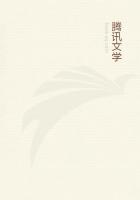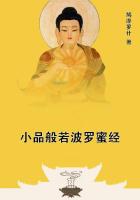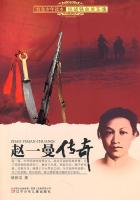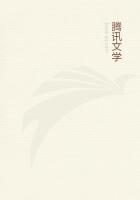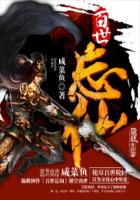"That system would not do for us. The Russian muzhik would have no faith if he swallowed merely things of that kind. What he believes in is something with a very bad taste, and lots of it. That is his idea of a medicine; and he thinks that the more he takes of a medicine the better chance he has of getting well. When I wish to give a peasant several doses I make him come for each separate dose, for I know that if I did not he would probably swallow the whole as soon as he was out of sight. But there is not much serious disease here--not like what I used to see on the Sheksna.
You have been on the Sheksna?"
"Not yet, but I intend going there." The Sheksna is a river which falls into the Volga, and forms part of the great system of water-
communication connecting the Volga with the Neva.
"When you go there you will see lots of diseases. If there is a hot summer, and plenty of barges passing, something is sure to break out--typhus, or black small-pox, or Siberian plague, or something of the kind. That Siberian plague is a curious thing.
Whether it really comes from Siberia, God only knows. So soon as it breaks out the horses die by dozens, and sometimes men and women are attacked, though it is not properly a human disease. They say that flies carry the poison from the dead horses to the people.
The sign of it is a thing like a boil, with a dark-coloured rim.
If this is cut open in time the person may recover, but if it is not, the person dies. There is cholera, too, sometimes."
"What a delightful country," I said to myself, "for a young doctor who wishes to make discoveries in the science of disease!"
The catalogue of diseases inhabiting this favoured region was apparently not yet complete, but it was cut short for the moment by the arrival of the assistant, with the announcement that his superior was wanted.
This first interview with the feldsher was, on the whole, satisfactory. He had not rendered me any medical assistance, but he had helped me to pass an hour pleasantly, and had given me a little information of the kind I desired. My later interviews with him were equally agreeable. He was naturally an intelligent, observant man, who had seen a great deal of the Russian world, and could describe graphically what he had seen. Unfortunately the horizontal position to which I was condemned prevented me from noting down at the time the interesting things which he related to me. His visits, together with those of Karl Karl'itch and of the priest, who kindly spent a great part of his time with me, helped me to while away many an hour which would otherwise have been dreary enough.
During the intervals when I was alone I devoted myself to reading--
sometimes Russian history and sometimes works of fiction. The history was that of Karamzin, who may fairly be called the Russian Livy. It interested me much by the facts which it contained, but irritated me not a little by the rhetorical style in which it is written. Afterwards, when I had waded through some twenty volumes of the gigantic work of Solovyoff--or Solovief, as the name is sometimes unphonetically written--which is simply a vast collection of valuable but undigested material, I was much less severe on the picturesque descriptions and ornate style of his illustrious predecessor. The first work of fiction which I read was a collection of tales by Grigorovitch, which had been given to me by the author on my departure from St. Petersburg. These tales, descriptive of rural life in Russia, had been written, as the author afterwards admitted to me, under the influence of Dickens.
Many of the little tricks and affectations which became painfully obtrusive in Dickens's later works I had no difficulty in recognising under their Russian garb. In spite of these I found the book very pleasant reading, and received from it some new notions--to be afterwards verified, of course--about Russian peasant life.
One of these tales made a deep impression upon me, and I still remember the chief incidents. The story opens with the description of a village in late autumn. It has been raining for some time heavily, and the road has become covered with a deep layer of black mud. An old woman--a small proprietor--is sitting at home with a friend, drinking tea and trying to read the future by means of a pack of cards. This occupation is suddenly interrupted by the entrance of a female servant, who announces that she has discovered an old man, apparently very ill, lying in one of the outhouses.
The old woman goes out to see her uninvited guest, and, being of a kindly nature, prepares to have him removed to a more comfortable place, and properly attended to; but her servant whispers to her that perhaps he is a vagrant, and the generous impulse is thereby checked. When it is discovered that the suspicion is only too well founded, and that the man has no passport, the old woman becomes thoroughly alarmed. Her imagination pictures to her the terrible consequences that would ensue if the police should discover that she had harboured a vagrant. All her little fortune might be extorted from her. And if the old man should happen to die in her house or farmyard! The consequences in that case might be very serious. Not only might she lose everything, but she might even be dragged to prison. At the sight of these dangers the old woman forgets her tender-heartedness, and becomes inexorable. The old man, sick unto death though he be, must leave the premises instantly. Knowing full well that he will nowhere find a refuge, he walks forth into the cold, dark, stormy night, and next morning a dead body is found at a short distance from the village.
Why this story, which was not strikingly remarkable for artistic merit, impressed me so deeply I cannot say. Perhaps it was because I was myself ill at the time, and imagined how terrible it would be to be turned out on the muddy road on a cold, wet October night.

